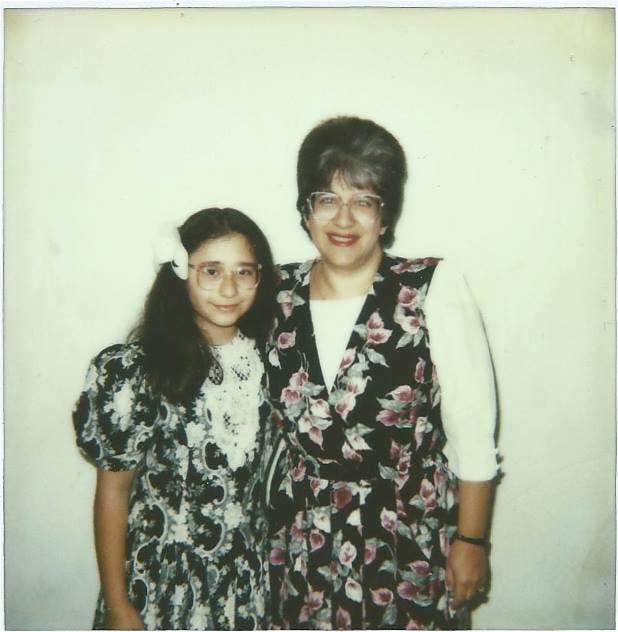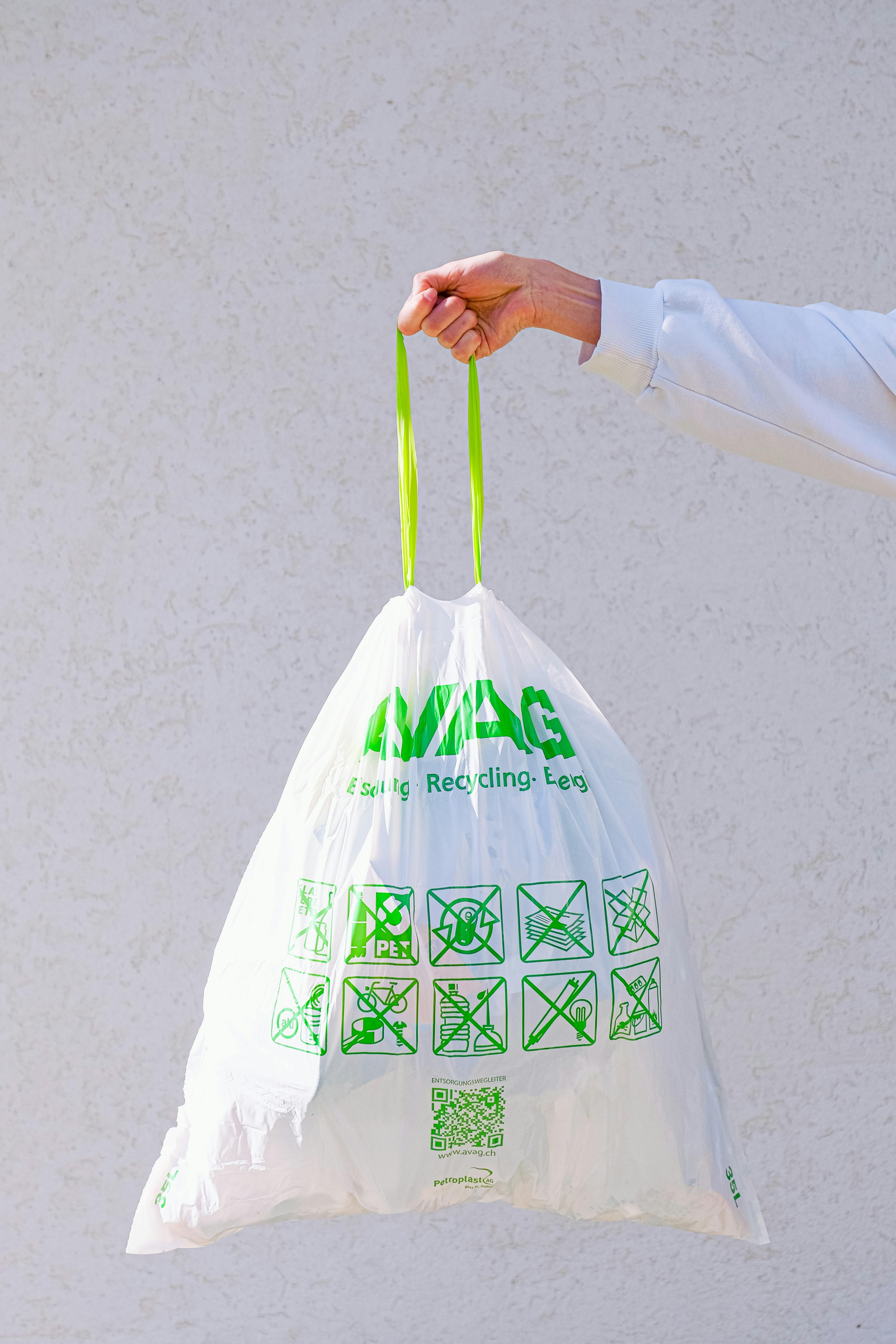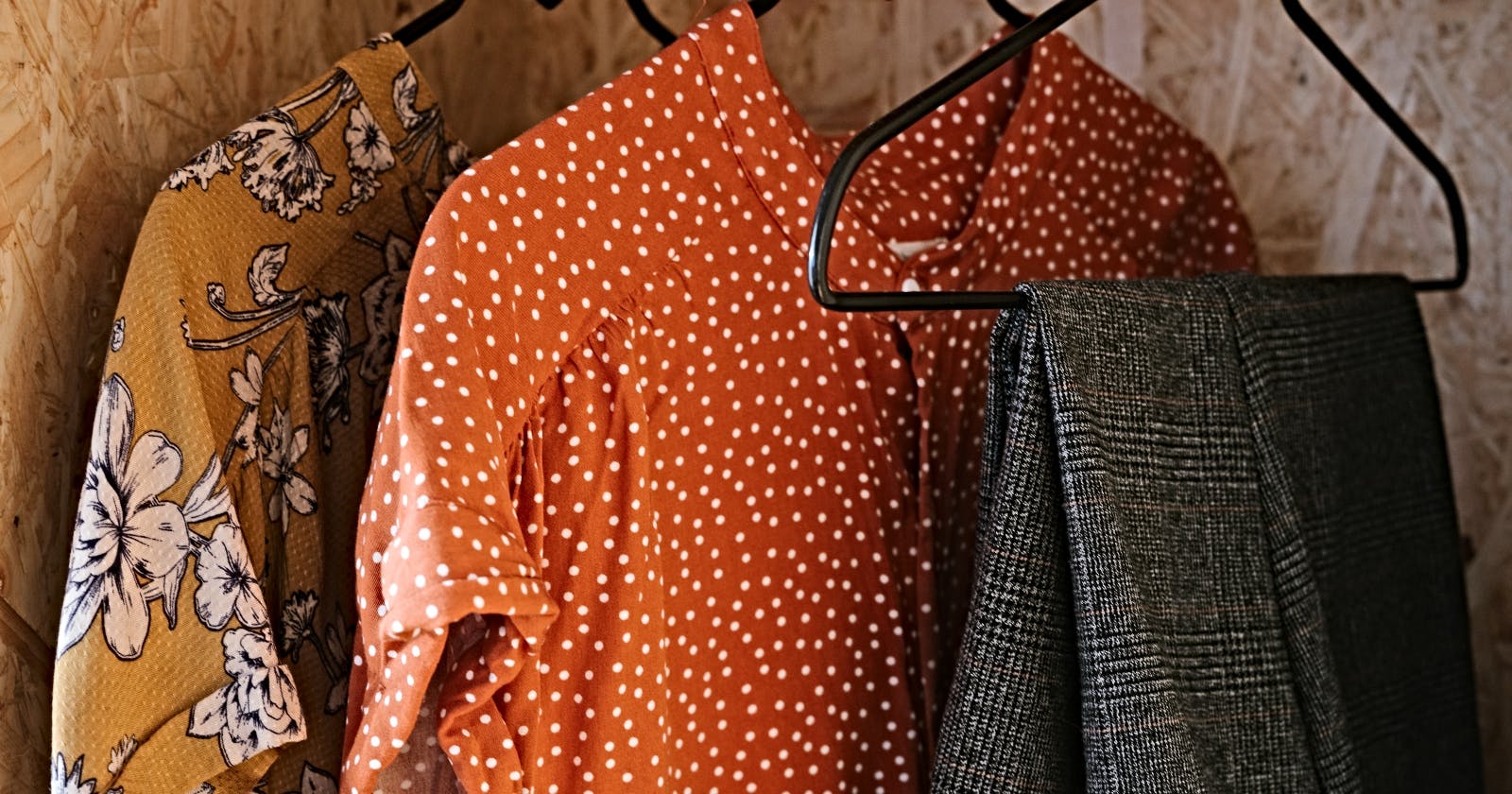One of the decisions my mother made before she died—one I continue to find admirable—was to landscape the western side of our corner house in St Louis. The house was made of brick and had an overgrown strip of land that faced the side street. When I was growing up, I’d nicknamed that area “the bear cave,” because I imagined that wild bears lived there.
Years later, the chaos of dead trees and unkempt shrubs was finally cleared away. My mother chose four hemlocks for the men to plant near the road, interspersed with some pastel-colored perennial flowers and hardy pink rose bushes, and she had a row of soft ferns planted closer in toward the house. She also picked out an array of smooth, irregularly shaped stepping-stones, which were laid along the inner edge of the ferncover so that she could walk outside next to her garden. Many afternoons, I would come home from my part-time work to see her there, lumbering up and down the length of her plot, or leaning on her Peruvian bird’s-head cane and examining the flowers beneath the trees, the unfurled scrolls of the ferns.
She liked looking out at her botanical arrangement from the two windows that faced west from her master bedroom on the second floor. When it was too hot for my mother to go outside, or when she was too sick, or too angry, she still spent long minutes gazing out at the garden from her room, feeling satisfied that something she put in the earth—something whose planting she had overseen, anyway—was blooming.
I had been precocious and exceedingly well-behaved when I was younger - a stellar student, an enthusiastic and somewhat talented violinist, and a sure-footed writer. At 6 or 7, I was writing comic epitaphs on the back of paper placemats whenever we went out to eat. (“Here lies the body of Mr. Holt, / struck one day by a lightning bolt.”)
My mother’s role, so it seemed to me, was to shuttle me to violin lessons, and ballet lessons, and summer camp for the gifted, and, of course, school when it was her turn to drive carpool. She read my report cards and took notes at my violin lessons so she could remind me what to practice before I could remember for myself. She bought me nice clothes, even occasionally fancy dresses from chic department stores. She made me pancakes on weekends. She did everything a dedicated middle-class mother in the Midwest of the late twentieth century was expected to do. Yet I never felt she was satisfied. Like most children do, I assumed that I was responsible for my mother's happiness and therefore had to keep doing better and better at school, violin, anything I set my hand to.
I recently watched a clip of an old dance class of mine. A family friend had given me a compact disk he’d made from the original video. I was 7 or 8 in the recording. When I played the clip on my laptop, I was surprised to see my mother appear in the studio’s wall of mirrors, her head tilting slightly to one side, her arms akimbo. She was sitting a few chairs down from this friend with his video recorder, one of a small group of parents watching the rehearsal.
She didn’t seem to be smiling, though she didn't frown outright. A deeply buried self-consciousness welled up in me as I sat watching the video, and the impatient question: What was she doing there? I imagined I must have been trying to keep it all together for her—stay on the beat, keep my posture straight. In one camera shot, I’m watching myself in the mirror, looking rather defeated and miserable as I hold my hands together in the shape of an egg. I dip and rise, dip and rise, trying to keep the egg’s imaginary shell intact.
One afternoon at the music conservatory, a few years later, my mother joked to a friend’s mother, “I feel so poor!”
We were in the hall, coming to or going from a violin lesson or perhaps a concert. I was standing a few feet away and heard every word. I felt myself flush and tightened my grip on the violin case in my hand. I knew we weren’t poor, because my father ran his own biofeedback practice and my mother worked full-time as well, and they both wore good clothes, and they had money for all our good clothes, for my violin, for a thousand other things, some of which I didn’t even know. So I dismissed what she said as an odd joke, even as I sensed the discomfort she was feeling and trying to ignore through this outward deflection.
She likely had to carefully budget for all these things for me and hadn’t much time or money left for herself. But the day when she could show herself some attention never arrived. She was just forty when my father’s first cancer diagnosis came. And after it went into remission, less than a year elapsed before my mother’s own cancer diagnosis. After it went into remission, my father’s second cancer diagnosis and his decline and death rapidly followed—all in the span of 5 years.
As it turned out, I couldn’t keep things together for my mother. I couldn’t save her.
 Jenn with her mother
Jenn with her mother
When I was 26, and a year had passed since my mother’s death, I could wait no longer and needed to clean out her closet in the back room upstairs. Besides the double closet, the second floor addition housed an old bed that I’d used for guests at middle school sleepovers, as well as the family desktop computer—a Compaq that had outlived my parents.
The portable hospital bed in the downstairs spare room had been removed soon after my mother had passed away. The partially used bottles of toiletries had all been disposed of. The nurses and aides, their papers filed away, had moved on to other home health care patients. Hospice, though, was still sending me mailings with their suggestions for self-care, for ways of remembering my “loved one.” Ha, I wrote long-hand in my journal, how could I possibly forget her? My task, as I understood it at that time, was to sort through and organize all my images of my mother: sick, well, or at least in remission; coiffed, bald, or bewigged; angry, expectant, scared. How tenaciously, how lightly, ought I to hold her in memory?
I wondered. I was concerned about how to do this thing called grieving “the right way,” and, I suppose, was interested in choosing wisely, as if it were something I had control over. Yet the way that memory takes hold doesn’t seem so much like a choice; it seems like a haunting. I needed to find the right spell, the spell that would turn the angry ghost into a crone, the crone back into a maiden.
My younger brother Benjamin was home from Knox College in Illinois, where he had just finished his freshman year. I took advantage of his presence at the tail end of his summer vacation to wrangle him into helping me clean out the spare bedroom upstairs. It was situated directly above the room in which my mother had died that past September, just before dawn. This spare room had been the place my mother stored the things she saved, things she didn’t want to donate or toss, not yet—not until after her death, it turned out, when it wasn’t something she would need to decide. That task was left to Ben and me, because our father Ken had died a decade earlier—also of metastatic cancer. How does that joke by Oscar Wilde go? “To lose one parent may be regarded as a misfortune; to lose both looks like carelessness.”
I wasn’t laughing.
I coaxed Ben into helping me empty the wide dresser, claiming to him that we might discover something interesting there. We found three plastic shopping bags full of latch-hook rugs, along with some mangy bits of yarn and the hooking tools my mother had used to secure the yarn bits onto the rugs’ foundational grids. Metal and plastic hooking tools lay at the bottom of one bag, looking like instruments for a dentist’s tray.
I held up a finished rug that depicted an orange sun half-set in a blue and golden-brown ocean. When I was a kid, that shaggy rectangle of carpet had hung on the wall just over the head of my bed, where it gathered dust. Before I could decide which pile to put it in (toss, donate, or keep), Ben pulled a second rug out of the bag, this one patterned with pale blue dolphins rising from the sea; then he dug out a third, conspicuously incomplete, which looked like it was on its way to becoming a school of colorful fish. I told Ben I could surely find someone who knew how to latch-hook to finish the border, so he could take it with him, if he wanted, when he went back to Knox—as if that would make up for his mother dying a week after his freshman year began. Lord, have mercy: I didn’t know how to let things stay the way they were; I didn’t know the alphabet of grief.
“It’s OK, Jenn, I don’t need an old rug in my dorm room,” Ben said. He was trying to reassure me, I suppose, but his voice sounded impatient. Once the dresser was empty, he excused himself, leaving me to deal with the more feminine things left behind.
Lucky Ben, I thought, to get away from this glut. Clothes still crowded the towering racks in the sliding-door closet. I was surprised to find myself, at first, enjoying the process of sizing up and sifting through my mother’s old outfits; some, from the 1970s, were approaching vintage status. So many crazy flower patterns and fantastic geometric designs. I could see my mother wearing each outfit, looking regal and efficient, as I remembered her great sense of purpose, the fierceness of her will. A hypothetical newspaper obituary rattled off in my mind: “A geriatric social worker, Linda fought the injustices suffered by the elderly and advocated across the state for their right to low-cost prescriptions, fair housing, and dignity….” My stomach turned as I remembered what such language glosses over. What the steroids she had to take for swelling did to expose her personality’s barbed-wire underbelly. What fear did to compound her disinhibited behavior. What the confusion of her last months did to her mind. And what all of it, since I was living at home with her for the last two years of her life, did to me.
Soon enough, my progress at sorting the clothes into piles slowed. The colors staled and I froze, unable to navigate my way between remembering her best self and acknowledging her worst. I sat in contemplation of a pale pastel-striped shirt, as if it were a painting, and then felt a wave of repulsion. This insane, ruffled collar? Who would dare wear such a thing in this world? It seemed to me that year to be a sparse and tender world, where we all lived in the gutter. But my mother had her eyes set on the stars, poor woman, piling her cart high with grandiose dreams weirdly enmeshed with notions of my success. She wanted to hire a limo to drive us to the premiere of a film shot in St Louis in which I’d been a child extra. She demanded that I keep playing violin through my father’s first battle with cancer (when I was 11). After I decided not to become a professional musician, she convinced herself that one day my writing habit would, somehow, catapult me into becoming a famous Hollywood screenwriter.
I folded up that particular silk-and-polyester shirt and stuffed it in the donation bag, but putting the egregious ruffle in its place didn’t resolve the conflict. No, there still was a squadron of outfits left, all apparently fancy brands, their maker’s tags sticking up out the backs of the collars like tiny shields. How much my mother spent on these thin cuts of cloth! How much energy went into these wavy curlicues and dyed petals, all of which were only to be hung up in a back room, flat, bodiless, emptied of the power she had eagerly invested in them. What had she felt, handing over the charge card? What had she hoped for, for herself? A morass of hangers tangled in my hands. Clacked in their tinny foreign tongue.
Quite suddenly I was tired. I was determined, though, to finish the task of translating these husks from their limbo into neatly folded and bagged donations. My unease with the clothes fought against an odd nostalgia for a past that I had lived only in snippets. And then I had to consider the long run of years I would face without my mother’s presence in them. So I made a treaty with my initial decision to bag it all up and held back a few things to try on. A simple, green, silk button-down top drew my eye, and a jacket quilted in a diamond pattern, with colors like an old Russian temple’s: blue, gold, green, white. I ran my hand over its feathery-light fabric and had the urge to pretend to be from a Russian town, the lady pulled in the troika, a central part of a completed story’s mosaic. Every word spoken or movement made would be a tiny stone helping create an irreproachable image, something stunning.
And just as quickly, I detached from the grand titles I’d imagined. There was so much flux beneath the surface, so much impermanence in the world. Still, for a minute in that room, I sympathized with what the jacket whispered to me about control, about a clean, perfect trajectory—no unforeseen weather, no unfair disease, no indignities.
I cinched the last bag’s plastic tie and stared into the empty closet. An image came to me: my mother gracefully stepping out of a hundred-dollar dress-suit and feeling the cool air on her skin, reminding her of her past, the darkness her body had absorbed.
 Photo by Anna Shvets: pexels.com/photo/person-holding-white-and-g..
Photo by Anna Shvets: pexels.com/photo/person-holding-white-and-g..
Of course, she’d had secrets.
Through joint therapy that I’d dragged her to, finally, I had learned she felt deeply hurt by her own mother, felt she came second, after her father—even, she imagined, when she was just a baby in 1950. I don’t know if she ever grieved that perceived loss of motherly attention, that imperfect attunement. She was barely an adult herself when she had to make the choice to sign papers committing her younger brother, Barry, to a mental institution—neither of her parents could summon the nerve to do it. I can only guess how far his mental illness unraveled the sleeves of normalcy—whatever normalcy would have meant in the upheaval of the late Sixties, when she was a teenager. Through it all she smoked packs of cigarettes, smoked her feelings into a breathless hush.
What all her suffering was about exactly, I was oddly afraid I would never understand well enough, but I’d had plenty of signposts. There was her total silence about schizophrenic Barry, who in 1991, after quietly re-selling all his tropical fish to the pet shop, hung himself. He willed to me a Greenpeace sticker and an old sliderule, and I saved the letters he wrote my mother over the years, but haven’t brought myself to read them yet.
There were my intermittent raids of her hidden stashes of candy—my mother usually kept them in the back of one of her desk drawers. There was her stymied anger, which she took out in playing shooting gallery games on the Compaq computer for hours at a time. And there was the day when, thanks to the steroids’ disinhibiting effect on her mind, she told me point-blank that she hated herself. I didn’t know what to say, but I can imagine that underneath the hate were self-judgment and intolerance and rejection and crippling shame, the kind of feelings that must have put a stop to her having any compassion for herself.
And so, having been exposed to all this, I became haunted—my mother kept raging at herself in my mind, even as she lost the energy to stay angry in her life. Once the cancer went to her brain that last year, she would (or could) only say a few scant words to me—asking me for reassurances, imploring me to be responsible—words that seemed somewhat less than her wardrobe, with its fancy flower prints and bold geometries, told me.
Then her clothes, too, became history.
That evening of the sorting, I dropped the “donates” off at a Jewish women’s clothing resale shop, and drove back in silence. All that was left was her garden, and the earth. In my mother’s patch of landscaping, the pink roses found their way to bloom despite the oppressive heat, and I hope my mother was able to bring her turmoil into the light of day there—maybe she didn’t feel the need to share it with me, or maybe she didn’t know how. Maybe she didn’t want her precocious daughter trying to help her make a neat picture from all these fragments. Maybe my curiosity is, after all is said and done, a blind alley.
Yet I can’t forget the thick navy-blue sweatshirt that Ben and I found alongside the latch-hook yarn in the dresser, a smiling, big-eyed, yellow cartoon sun plastered on its front under the words Blue Cheer. My mother had bought it a couple years before her death and had worn it during cold weather.
I learned only recently that Blue Cheer was the name of a rock band that was active when she was a teenager. Had she been a fan? Had she known the band was named for a certain kind of LSD? (Had she tried acid ever?) I’ll never know. But I saw a sign in the sweatshirt: a cheery face ringed with blue, the blue of some depression kept at bay. I concluded it was easier for my mother to live at a distance from her deeper feelings, pride bricking over the shame over the hate over the wound over the love. And maybe, for a while, it was best for me to do the same. I think how right it must have felt for her to keep that closet full of flowers.
The whole two-story house holds its peace now: My brother and I sold it finally, early in 2015, to a young couple. I have no idea what they’ve done with the back room, and I don’t think about it much these days. Let them have it. I’m content enough here in my apartment in Oakland. A full decade has passed since that muddled sorting. My days now are filled with Bay Area sun and pale blue skies. I usually work alone from my home office, which looks out onto a wide garden behind the apartment complex. During the night, I often have regular visitors—the angry ghost, the crone, and even, from time to time, the youthful maiden appear: my mother, still alive. In my dreams her forms metamorphose one into the other, like the characters of myths written in another time and place, in a culture all but lost. And so I want to keep these memories known, just as I want to keep a few things close by me to look over at when I’m tired of this screen. Just as I keep that quilted jacket my mother wore, tucked away in the bottom dresser drawer in my bedroom. I can’t quite bring myself to wear it, but I take it out from time to time, and touch the fabric, and wonder at how light it is, and how heavy.
Thanks to New Haven Review for its original publication of this piece.

